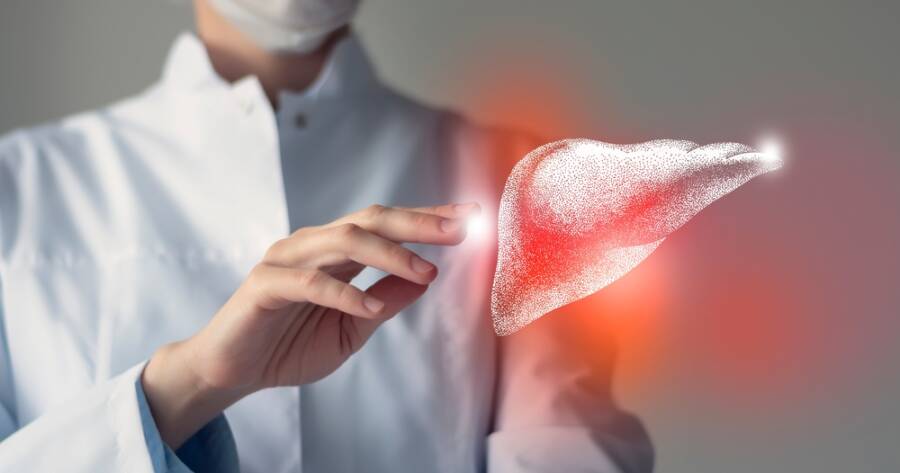Nonalcoholic fatty liver disease (NAFLD) poses a significant health challenge, affecting millions silently across the United States. From identifying the early, symptomless stages to tackling advanced cases through lifestyle changes, medications, and surgery, understanding NAFLD management is essential. With ongoing research and emerging treatments, individuals can navigate towards better liver health and improved quality of life.
Understanding Fatty Liver Disease
Fatty liver disease, also known as nonalcoholic fatty liver disease (NAFLD), is an increasingly common condition in the United States, affecting an estimated 20% to 40% of adults due to numerous factors.
This condition encompasses a spectrum of liver issues ranging from simple steatosis, which is generally benign, to nonalcoholic steatohepatitis (NASH), a more serious inflammation that can lead to cirrhosis and liver cancer if untreated. The disease typically shows no symptoms in its early stages, making it a silent but significant health concern.
Identifying the Disease
Diagnosis often occurs incidentally, during tests conducted for other reasons, such as imaging studies or blood tests revealing elevated liver enzymes. When NAFLD is suspected, additional investigations like ultrasounds or liver biopsies may be warranted to confirm the condition and assess the level of liver damage. Understanding the exact nature and extent of fatty liver disease is crucial, as it determines the treatment approach and helps in monitoring disease progression.
Lifestyle Modifications: The Cornerstone of Treatment
The primary strategy for managing NAFLD is through lifestyle modifications. Weight loss is particularly effective, with studies indicating that losing between 7% to 10% of body weight can significantly improve liver health and reduce fat accumulation.
Embracing a Mediterranean diet, which is rich in whole grains, fruits, vegetables, and healthy fats, alongside regular physical activity, offers substantial benefits in reversing liver damage and improving heart health.
Role of Pharmacological Treatments
While lifestyle changes are paramount, certain medications are being explored as adjunct therapies for enhancing treatment outcomes. Drugs like Vitamin E and pioglitazone are currently used for specific patient groups, such as those with NASH and significant fibrosis, who may benefit from these treatments.
Although these medications are not suitable for everyone, they may offer advantages when used appropriately. New pharmacological agents, including GLP-1 receptor agonists and FXR ligands, are under investigation, holding promise as future therapeutic options.
Surgical Interventions for Advanced Cases
In cases of morbid obesity combined with NAFLD, bariatric surgery might be considered. This option has proven beneficial in improving liver histology, particularly in patients with metabolic syndrome components and can aid in managing obesity-related complications.
Nevertheless, it is vital to assess the patient’s overall health and readiness for surgery, as this intervention involves significant lifestyle adjustments post-operation. Regular monitoring and supportive care are essential for achieving the best outcomes over the long term.
Potential Alternatives and Future Directions
Alternative therapies, such as certain antioxidants and caffeinated coffee, are being researched for their potential to reduce liver inflammation. However, these should only be pursued under medical guidance to ensure safety and effectiveness.
As research continues, combination therapies targeting both NASH and fibrosis are anticipated. The goal is to leverage multiple pharmacological actions synergistically to achieve better outcomes, offering hope for more personalized and effective treatment strategies that address individual needs.
Importance of Regular Monitoring
Ongoing monitoring and regular check-ups are vital in managing NAFLD effectively, as they help track the disease’s progress and ensure that the treatment plan remains suitable. Blood tests, imaging studies, and sometimes biopsies are essential tools in this process.
Additionally, maintaining open communication with healthcare providers and accessing support services can aid in successfully navigating the complexities of living with NAFLD. The British Liver Trust and similar organizations offer resources to assist patients in maintaining a healthy lifestyle and managing their condition effectively.
Learn More About Fatty Liver Treatment Options
Nonalcoholic fatty liver disease represents a significant and growing health concern in many populations globally. Understanding the range of treatment options available, from lifestyle modifications to pharmacological and surgical interventions, is crucial for effective management and improved outcomes.
Proactive engagement with medical professionals, as well as staying informed about emerging therapies, can empower those affected by fatty liver disease to take control of their health. As research progresses, new treatment avenues continue to emerge, promising greater hope for managing this pervasive condition and enhancing the quality of life for many.

